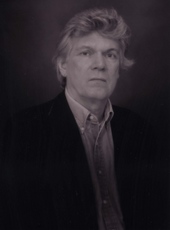
A fascinating book: The Chrysanthemum and the Bat

A fascinating book: The Chrysanthemum and the Bat
by Dan McGuire (Jun 26, 1977)
Digitized by Jessica Suchman and Catherine Nissley.
At hand is a fascinating book by Robert Whiting, an American who attended school in Japan and has lived there for many years.
It's titled "The Chrysanthemum and the Bat" or "Baseball Samurai Style." Intending to read a few chapters, I stuck my nose in it and didn't emerge until 247 pages later, completely captivated by a story that has never really been told before.
The book published by Dodd, Mead and priced at $10, should be available at local stores within the next couple of weeks. A cover blurb gives an idea of what it's about:
"At first glance, baseball in Japan appears to be the same game played in the U.S. but it isn't. The Japanese view of life stressing group identity, cooperation, hard work, respect for age, seniority and "face" has permeated almost every aspect of the sport.
"Americans who come to play in Japan quickly realize that Baseball Samurai Style is very different. For some it is fascinating and exciting; for others, exasperating, and even devastating."
Of particular interest to Island residents is that there is almost a full chapter on Wally Yonamine, the Farrington High graduate who is now the manager of the Chunichi Dragons in the Japan major leagues.
A note from author Whiting said: "Yonamine is recognized as one of the greatest players ever in Japan baseball. He was a sort of 'Oriental Jackie Robinson', the first American to play professional baseball in Japan after World War II."
He became a legend:
Yonamine played 10 years for the Yomiuri Giants and two for the Dragons before retiring to the dugout with a lifetime batting average of .311. He is still regarded as the best leadoff hitter in Japan major league history and a legendary figure on a footing with Babe Ruth, Lefty O'Doul and Sadahuru Oh, the home run champion.
But Wally's early years in Japan, after a pro football career with the San Francisco 49ers and Class C baseball experience at Salt Lake City, weren't very easy.
"...It was Yonamine's aggressive style of play on the base paths that made the country take notice. Though it nearly lead to his undoing, he introduced the hard slide at second base to break up the double play. The idea was to upset the fielder or try to kick the ball out of his glove to prevent him from throwing to first. These were standard tactics in America – good, hard-nosed aggressive baseball – but the Japanese did not appreciate them. The first time Yonamine tried a hard slide, the umpire called him out for interference, and the fans grumbled that he was a dirty player."
Whiting also points out other problems, especially the fact that many fans resented American Nisei. They yelled "Hawaii e kaere! (Go back to Hawaii)" or "Yankee go home!"
Went through hell:
"I went through hell that first year (1951)," Whiting quotes Yonamine as saying.
But he batted .354, leading the Giants to a pennant in their division and then a Japan Series victory.
After the season, team leader Shigeru Chiba approached Wally and said:
"As a rule, we Japanese don't like Nisei. But you are a good man. You come back here to live and we'll back you up anyway we can."
Wally was elected to the All-Star team seven years in a row and the Giants won pennant during eight of his 10 seasons.
Wally paved the way in Japan baseball for Americans and many have done quite well. Some have been big disappointments – Don Zimmer, Dick "Dr. Strangeglove" Stuart, Jim Gentile, Zolio Versalles and even Frank Howard.
The "giant headache" was – no surprise – Joe Pepitone, who caused nothing but trouble despite collecting $70,000 for appearing in exactly 14 games.
"After the initial outrage wore off," writes Whiting, "Pepitone became a standing joke in Japan. An office worker who fouled up a job, for example, would be dubbed a 'Pepitone.'"
This work is licensed under a Creative Commons License.
Some rights reserved.
